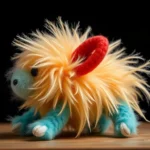
When discussing Pitbull mixes, it’s essential to clarify what this term encompasses. A Pitbull mix is a dog that has one or more breeds in its lineage that are classified as Pitbulls, including the American Pit Bull Terrier, American Staffordshire Terrier, or Staffordshire Bull Terrier. These dogs often inherit a variety of traits from their parent breeds, leading to unique combinations in appearance and temperament.
Despite their popularity, Pitbull mixes are often surrounded by misconceptions. Many people associate these dogs with aggression and danger due to the stigma attached to the term “Pitbull.” However, it is vital to approach the topic with an open mind, focusing on the individual dog rather than the breed as a whole. Understanding the behavioral traits of these mixes, the factors that can influence aggression, and the potential for positive companionship is essential for any prospective owner or enthusiast.
Understanding Pitbull Breeds
Types of Pitbull Breeds
To better understand Pitbull mixes, we must first look at the primary breeds from which they originate:
-
American Pit Bull Terrier: Known for their strength and athleticism, this breed is often the most recognized as a “Pitbull.” They are loyal and intelligent but require proper training and socialization.
-
American Staffordshire Terrier: Similar in appearance to the American Pit Bull Terrier, these dogs are also known for their loyalty and protective instincts. They have a strong build and a gentle temperament when well-trained.
-
Staffordshire Bull Terrier: Smaller than the first two breeds, Staffordshire Bull Terriers are known for their affectionate nature and strong bond with families. They are energetic and playful, making them great companions.
Characteristics of Pitbulls
Pitbull mixes exhibit a variety of physical and temperament traits due to their diverse genetic backgrounds.
-
Physical Traits: Generally, Pitbull mixes are medium to large-sized dogs with muscular builds. Their appearance can vary significantly based on the other breed in the mix, but they often have short coats and broad heads.
-
Temperament Traits: Typically, Pitbulls are known for their loyalty, intelligence, and high energy levels. They are often eager to please their owners, making them highly trainable. However, without proper guidance, they may display unwanted behaviors.
The Nature of Aggression in Dogs
Understanding Dog Aggression
Aggression in dogs is a complex behavior that can manifest in various ways. It is crucial to define aggression clearly to understand the potential risks associated with any breed, including Pitbull mixes.
-
Definition of Aggression: In dogs, aggression is a behavior intended to assert dominance or protect territory. It can lead to confrontations with other animals or humans if not managed correctly.
-
Types of Aggression:
- Fear-Based Aggression: Resulting from anxiety or fear, this type of aggression can occur if a dog feels threatened.
- Territorial Aggression: This occurs when a dog perceives an intruder in its territory and reacts defensively.
- Protective Aggression: This involves a dog protecting its owner or another family member from perceived threats.
Factors Influencing Aggressive Behavior
Aggression in dogs, including Pitbull mixes, can be influenced by several factors:
-
Genetics vs. Environment: While genetics can play a role in temperament, the environment a dog is raised in significantly impacts its behavior. Dogs that are neglected, abused, or not socialized properly may develop aggressive tendencies.
-
Importance of Socialization and Training: Proper socialization from a young age can help mitigate fear-based and territorial aggression. Exposing dogs to various environments, people, and other animals is crucial for healthy development.
-
Role of the Owner’s Behavior and Lifestyle: Owners who exhibit calm, assertive leadership can significantly influence their dog’s behavior. A consistent, loving approach is necessary for fostering a balanced temperament.
Are Pitbull Mixes More Dangerous Than Other Breeds?
Statistics on Dog Attacks
Understanding whether Pitbull mixes are more dangerous than other breeds requires a look at statistics:
-
Dog bite statistics often indicate that certain breeds, including Pitbulls, are involved in a significant number of attacks. However, it is essential to note that these statistics can be misleading without context.
-
Specific data regarding Pitbulls and Pitbull mixes shows that many attacks involve poorly trained or socialized dogs. Often, these incidents stem from owner negligence rather than the breed itself.
Comparing Aggression Levels
Research indicates that aggression levels can vary significantly among dog breeds.
-
Studies have shown that many breeds are misrepresented in terms of aggression. Pitbull mixes often fall victim to bias, where their breed is judged based on a few high-profile cases rather than their overall temperament.
-
An analysis of aggression levels across various breeds highlights that, while some dogs may have a predisposition to certain aggressive behaviors, responsible ownership and training are far more crucial in determining a dog’s temperament than breed alone.
The Role of Socialization and Training
Importance of Early Socialization
Early socialization is vital for any dog, especially for Pitbull mixes.
-
How Early Exposure Affects Behavior: Dogs introduced to various sights, sounds, and experiences during their formative months are more likely to develop into well-adjusted adults.
-
Recommended Socialization Practices: Engaging with other dogs, visiting different environments, and exposing the dog to diverse people can foster confidence and reduce anxiety-related aggression.
Training Techniques for Pitbull Mixes
Positive reinforcement is one of the most effective training methods for Pitbull mixes.
-
Positive Reinforcement Methods: Rewarding desired behaviors with treats, praise, or play encourages dogs to repeat those behaviors. This approach builds trust and strengthens the owner-dog bond.
-
Obedience Training and Commands: Teaching basic commands, such as sit, stay, and come, is crucial for managing a dog’s behavior and ensuring safety.
-
Handling Behavioral Issues Effectively: Addressing behavioral problems early with appropriate training techniques can prevent aggression from escalating. Working with a professional trainer familiar with Pitbull mixes can be beneficial.
Responsible Ownership of Pitbull Mixes
Choosing the Right Pitbull Mix
Selecting the appropriate Pitbull mix for your lifestyle is crucial for a harmonious household.
-
Factors to Consider: Consider your living environment, activity level, and family dynamics. Some mixes may require more exercise or attention than others.
-
Importance of Adopting from Reputable Sources: Adopting from shelters or reputable breeders ensures that the dog has been adequately socialized and cared for before entering your home.
Commitment to Training and Care
Owning a Pitbull mix requires a commitment to ongoing training and care.
-
Daily Exercise and Mental Stimulation Needs: These dogs often have high energy levels and need regular exercise to remain healthy and happy. Activities like walking, running, and playing fetch can help meet their needs.
-
Health Care Considerations: Regular vet check-ups and a balanced diet are essential for maintaining the health of a Pitbull mix. Being aware of breed-specific health issues can also aid in proactive care.
Myths vs. Facts About Pitbulls and Their Mixes
Common Myths
Misconceptions about Pitbull mixes often lead to fear and misunderstanding.
-
Pitbulls Have Locking Jaws: This myth has been debunked by numerous veterinarians and experts. All dogs have the same jaw structure, and the idea of “locking jaws” is a myth.
-
Pitbulls Are Inherently Aggressive: While aggression can occur in any breed, it is not accurate to label an entire breed as dangerous based on the actions of a few individuals.
Facts to Consider
Understanding the facts can help dispel myths surrounding Pitbull mixes.
-
Evidence-Based Rebuttals to Myths: Research consistently shows that with proper training and socialization, Pitbull mixes can be gentle and loving companions.
-
Positive Traits and Stories of Pitbull Mixes: Many owners share heartwarming stories of their Pitbull mixes as loyal family members, demonstrating that aggressive behavior is not a given.
Real Life Stories: Pitbull Mixes in Families
Positive Experiences
Many families have found joy in owning Pitbull mixes.
-
Testimonials from Owners: Owners often describe their Pitbull mixes as affectionate, loyal, and great with children, dispelling the notion that these dogs should be feared.
-
How Pitbull Mixes Can Be Loving Family Pets: With the right training and environment, Pitbull mixes can thrive as beloved family members, participating in daily activities and family events.
Challenges Faced
While many experiences are positive, some challenges may arise.
-
Stories of Behavioral Issues and Resolutions: Some owners have faced challenges with aggression or anxiety in their Pitbull mixes, but through patience and training, many have successfully managed these behaviors.
-
Importance of Community Support and Resources: Resources such as training classes and community support groups can provide necessary tools for owners facing challenges, fostering a supportive environment for both dogs and their families.
Conclusion
In summary, the question of whether Pitbull mixes are dangerous cannot be answered with a simple yes or no. Their behavior is heavily influenced by genetics, environment, and training. Owners who invest time in socialization and training can help ensure their Pitbull mixes develop into well-behaved companions.
Ultimately, responsible ownership plays a crucial role in the behavior of Pitbull mixes. By understanding the myths and realities surrounding these dogs, we can foster a more informed perspective that encourages adoption and responsible care.









